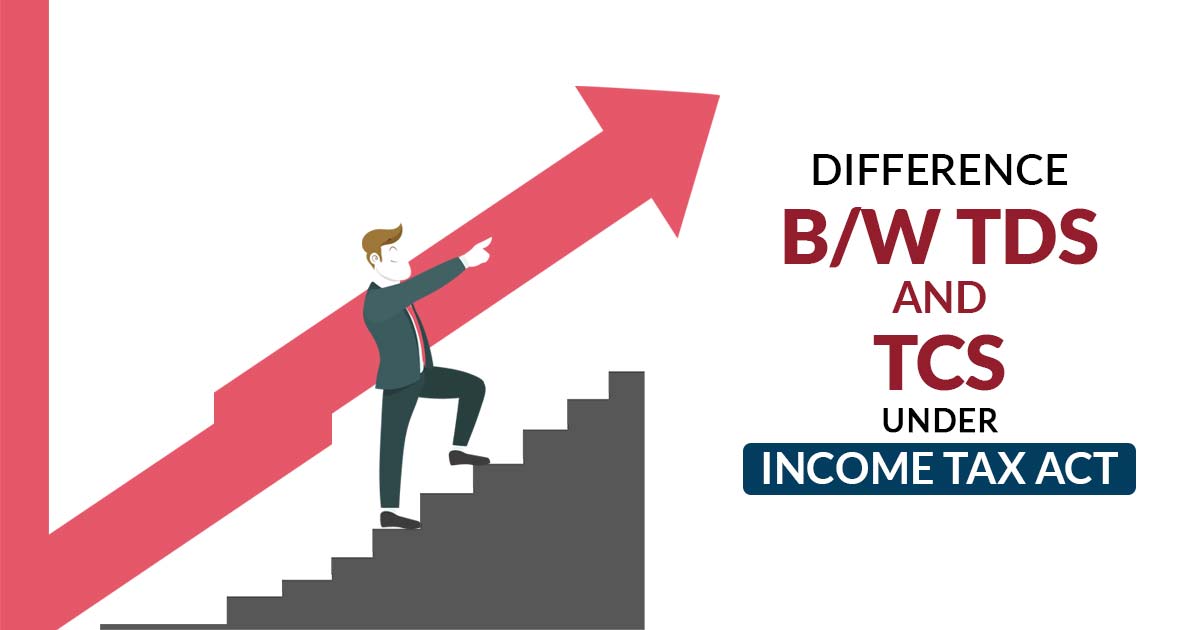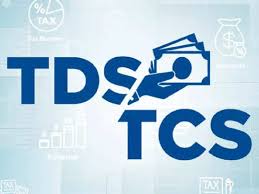User Intent
People searching for “TDS vs TCS” want to understand the fundamental differences between Tax Deducted at Source (TDS) and Tax Collected at Source (TCS). They may be business owners, accountants, finance students, or individuals looking to comply with tax laws. This guide provides a step-by-step breakdown to clarify these two tax mechanisms.
Introduction
When dealing with taxes in India, two terms frequently come up—TDS (Tax Deducted at Source) and TCS (Tax Collected at Source). While both involve tax payments to the government, they serve different purposes. TDS applies to payments made, while TCS is levied on receipts of certain goods and services. Understanding their applications, benefits, and limitations can help businesses and individuals comply with tax laws effectively.
Defintion
What is TDS?
Tax Deducted at Source (TDS) is a tax mechanism where the payer deducts a certain percentage of tax before making a payment to the recipient. The deducted amount is then deposited with the government.
Example of TDS:
If a company pays a freelancer Rs. 50,000 for services, then it must deduct 10% TDS (Rs. 5,000) before making the payment. As a result, the freelancer receives Rs. 45,000 instead of the full amount. Meanwhile, the company deposits the deducted Rs. 5,000 with the government on behalf of the freelancer. Eventually, the freelancer can claim this amount as a tax credit while filing their income tax return.
What is TCS?
Tax Collected at Source (TCS) is a tax collected by the seller when receiving payment for certain goods and services. The collected amount is deposited with the government.
Example of TCS:
If a car dealer sells a luxury vehicle worth Rs. 20 lakh, they collect 1% TCS (Rs. 20,000) from the buyer. The collected tax is then paid to the government.
For more information visit this site: https://www.incometax.gov.in
Application
When is TDS Applicable?
- Salary Payments – Employers deduct TDS before paying salaries.
- Professional Fees – Businesses deduct TDS while paying consultants or freelancers.
- Rent Payments – TDS applies to commercial rent exceeding Rs. 2.4 lakh annually.
- Interest on Fixed Deposits – Banks deduct TDS on interest exceeding Rs. 40,000 (Rs. 50,000 for senior citizens).
When is TCS Applicable?
- Sale of Motor Vehicles – If a vehicle costs more than Rs. 10 lakh.
- Sale of Scrap & Minerals – Includes coal, lignite, and iron ore.
- E-Commerce Transactions – Online platforms must collect TCS from sellers.
- Foreign Remittances – TCS is collected on sending money abroad under LRS (Liberalized Remittance Scheme).
Benefits
Benefits of TDS
Ensures steady government revenue – Tax is collected throughout the year, reducing evasion.
Prevents tax avoidance – Since tax is deducted before payment, individuals cannot avoid it.
Reduces taxpayer burden – Instead of paying a lump sum at year-end, taxes are deducted in small amounts.
Encourages compliance – Since businesses handle deductions, employees and service providers comply with tax laws easily.
Benefits of TCS
Reduces tax evasion – The tax is collected at the transaction stage, ensuring compliance.
Boosts transparency – Sellers report collections, creating a clear tax trail.
Government cash flow – It ensures funds are regularly deposited with tax authorities.
Applicable to high-value transactions – Prevents underreporting of income from expensive goods.
Limitations
Limitations of TDS
Compliance burden – Businesses must track deductions, deposits, and filings.
Penalties for non-compliance – Late TDS deposits attract interest and fines.
Refund delays – Excess deductions may result in delayed refunds.
Limitations of TCS
Applies only to specific transactions – Not all goods and services attract TCS.
Buyer bears the tax burden – Increases costs for consumers.
Complex documentation – Businesses must maintain collection records and deposits.
Comparative Table: TDS vs TCS
| Feature | TDS (Tax Deducted at Source) | TCS (Tax Collected at Source) |
|---|---|---|
| Who deducts/collects? | Payer (Employer, Business) | Seller (Business) |
| When is it applied? | At the time of making payments | At the time of receiving payments |
| Applicable on | Salaries, rent, professional fees, etc. | Sale of motor vehicles, scrap, e-commerce transactions, etc. |
| Who bears the tax? | Receiver of income | Buyer of goods/services |
| Government Deposit | Payer deposits TDS | Seller deposits TCS |
| Regulated by | Income Tax Act, 1961 | Income Tax Act, 1961 |
| Penalty for non-compliance | Interest, late fees, penalties | Interest, late fees, penalties |
Conclusion
TDS and TCS are two different tax collection mechanisms that serve different purposes but ensure better tax compliance. TDS is deducted on payments made, while TCS is collected on specific transactions. Understanding their applications, benefits, and limitations is essential for businesses and individuals to comply with tax regulations and avoid penalties.
FAQs
1. Is TDS refundable?
Yes, if excess TDS is deducted, then you can claim a refund by filing an income tax return (ITR). Moreover, the refund will be processed after the tax department verifies your ITR.
2. Who is responsible for depositing TCS?
The seller who collects TCS is therefore responsible for depositing it with the government.
3. Can TCS be adjusted against income tax liability?
Yes, TCS paid can be adjusted against the total tax liability when filing ITR.
4. What happens if TDS is not deducted?
Failure to deduct TDS leads to interest penalties, disallowance of expenses, and fines.
5. How often should TDS and TCS be deposited?
TDS is deposited monthly, while TCS must be deposited within 7 days of the following month.

For further details access our website: https://vibrantfinserv.com

